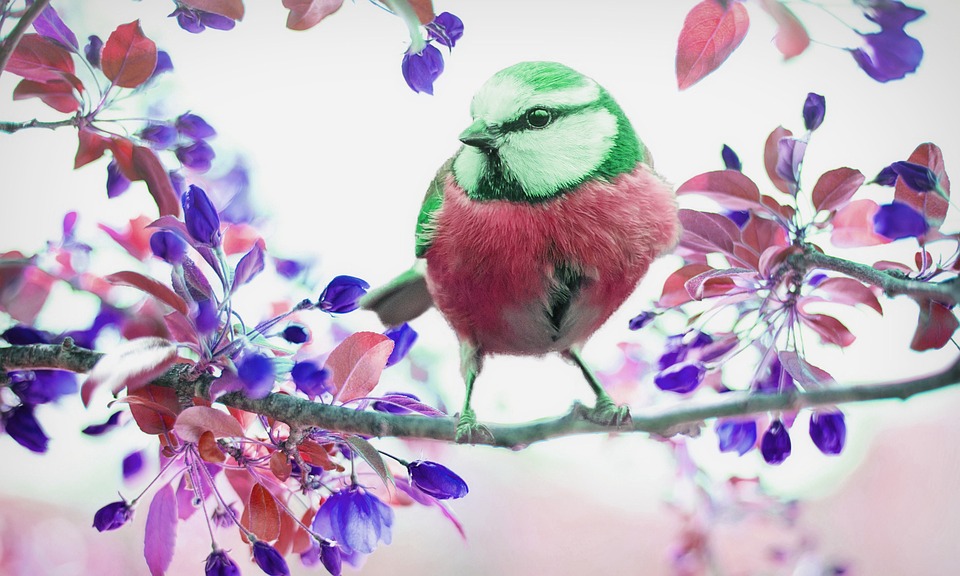Parrots are highly intelligent and social creatures that thrive on interaction and mental stimulation. One common behavior that parrot owners may encounter is play aggression. Play aggression is a natural behavior in parrots that can escalate if not properly addressed. In this article, we will discuss how to recognize signs of play aggression in parrots and provide training techniques to address it effectively.
What is Play Aggression?
Play aggression in parrots is a form of behavior where the bird engages in rough or aggressive play. This behavior is often exhibited during play sessions with their owners or other birds. While play aggression is normal and instinctual for parrots, it can sometimes become problematic if not properly managed.
Recognizing Signs of Play Aggression
1. Biting or Nipping: Parrots may use their beaks to nip or bite during play. While it may start as gentle nibbling, it can escalate into painful bites if encouraged or left unchecked.
2. Puffed Feathers and Raised Crest: When a parrot becomes aggressive during play, it may puff up its feathers and raise its crest. These physical changes indicate heightened excitement or aggression.
3. Lunging or Charging: Parrots may lunge or charge towards their owners or other birds during play, displaying territorial or dominant behavior.
4. Squawking or Screeching: Play aggression can be accompanied by loud squawking or screeching, signaling excitement or frustration.
5. Wing Flapping: Parrots may vigorously flap their wings during play, which can sometimes escalate into aggressive behavior if not redirected.
Addressing Play Aggression through Training
1. Set Boundaries: Establish clear boundaries during playtime. Teach your parrot what is acceptable and what is not. Use consistent verbal cues, such as “gentle” or “no bite,” to communicate your expectations.
2. Positive Reinforcement: Reward your parrot for good behavior during play. When your parrot engages in appropriate play, offer praises, treats, or a favorite toy as positive reinforcement.
3. Redirecting Aggression: Whenever your parrot displays signs of play aggression, immediately redirect its attention to an appropriate toy or activity. Encourage positive play behaviors and discourage aggressive ones.
4. Time-outs: If your parrot persists in displaying aggressive behavior, consider implementing short time-outs. Place the bird in a separate area for a brief period to calm down and reflect on its actions.
5. Training and Socialization: Regular training sessions and socialization with other birds or parrot owners can help reduce play aggression. Exposure to different environments and experiences can teach your parrot appropriate social behaviors.
FAQs about Play Aggression in Parrots
Q: Is play aggression in parrots normal?
A: Yes, play aggression is a normal behavior in parrots. However, it should be managed and redirected appropriately to prevent it from escalating.
Q: Can play aggression be dangerous?
A: Play aggression can escalate and potentially lead to injuries, especially if the parrot bites or lunges aggressively. It is important to address and manage this behavior through training.
Q: Should I punish my parrot for play aggression?
A: Punishment is not recommended as it may create fear or anxiety in your parrot. Instead, focus on positive reinforcement, redirection, and training techniques to address play aggression.
Q: How long does it take to address play aggression in parrots?
A: The time required to address play aggression varies depending on the individual parrot and consistency of training. Patience and consistent training techniques are key to modifying this behavior.
Q: Should I seek professional help to address play aggression?
A: If you are struggling to address play aggression in your parrot or if the behavior becomes increasingly aggressive, it is advisable to consult an avian behaviorist or a qualified parrot trainer for guidance.
By recognizing the signs of play aggression and implementing appropriate training techniques, you can help your parrot channel its energy into positive play behaviors. Remember, patience, consistency, and positive reinforcement are crucial in shaping your parrot’s behavior and fostering a harmonious relationship.









